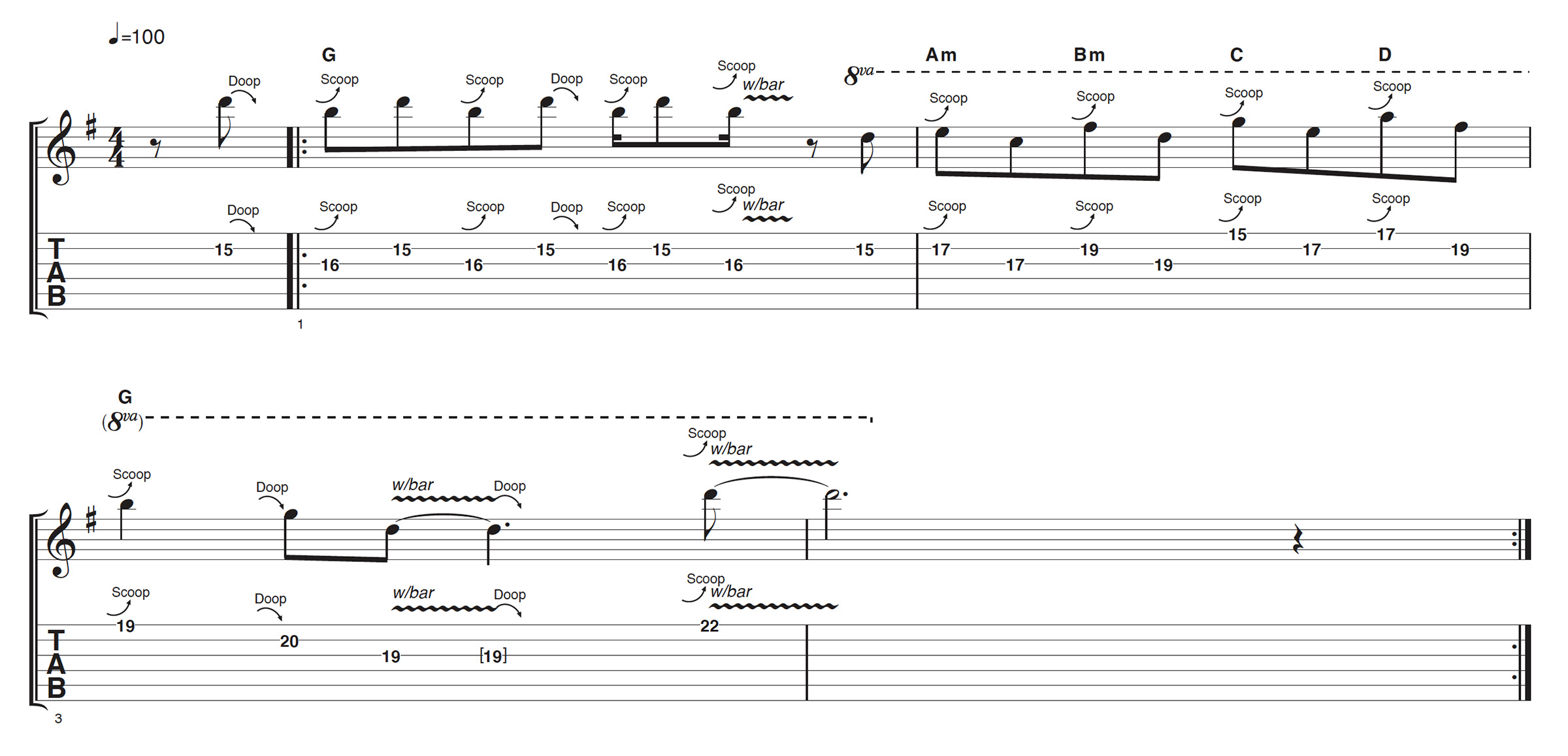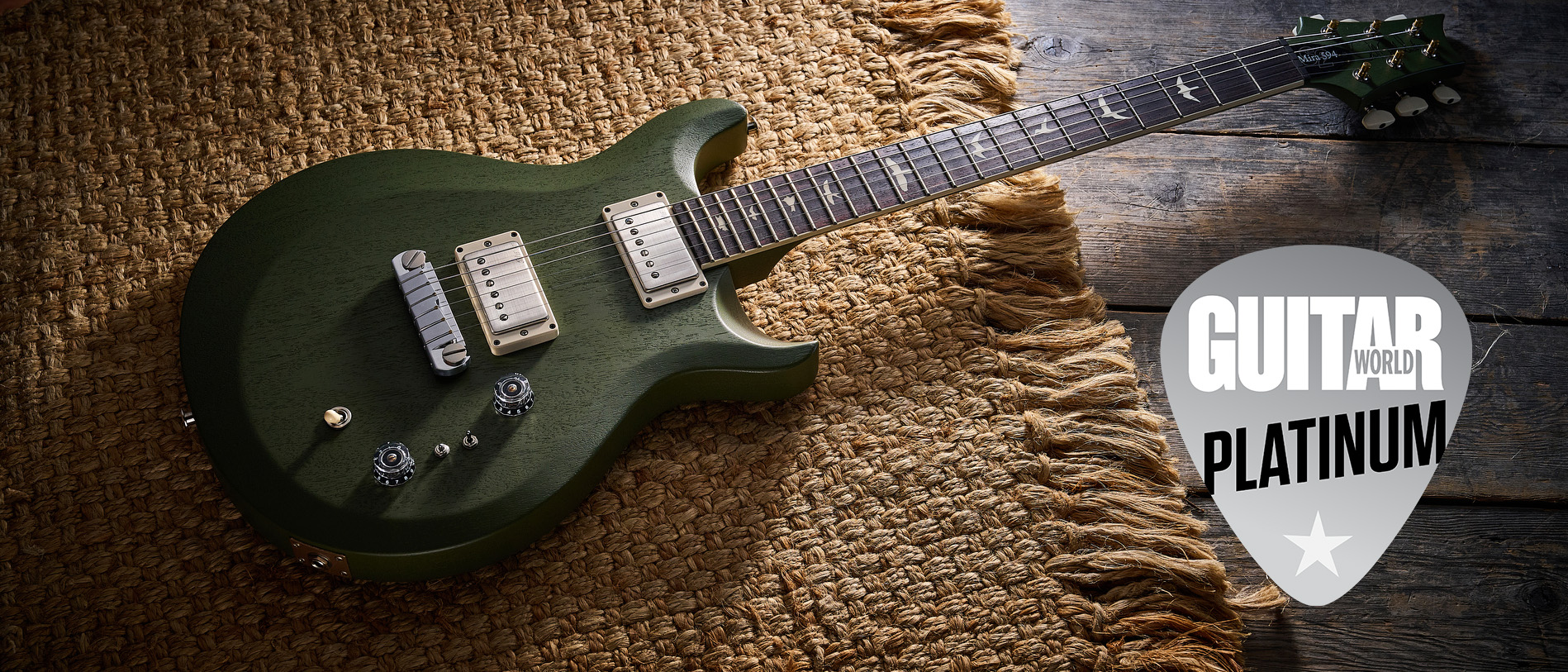15 Jeff Beck guitar lessons that will change the way you play
From whammy bar gargles through picking techniques led by the thumb, it's time to take a deep dive into the style of guitar's most original player

In a career spanning nearly 60 years, Jeff Beck can truthfully be said to have pushed the boundaries of contemporary electric guitar playing consistently and beyond the expectation of his fans.
Often cited as the guitar hero’s guitar hero, he would wow audiences and fellow musicians alike with his unique playing style, which evolved so much through the years.
We could fill the website many times over with lessons on Jeff’s style, so what follows is just a taster of some of his key techniques, starting with a pictorial demonstration of his approaches to playing fingerstyle.
Our tab lessons begin with a look at Jeff’s musical style in the Yardbirds, before taking in some of his ’70s fusion era and culminating in his whammy bar- and volume swell-infused fingerstyle lead lines.
Jeff's pick hand technique
From his efficient movements, you’d be hard pressed to tell just how much is going on when it comes to Jeff’s picking. Jeff generally fingerpicks using just his thumb and first finger. This gives the best economy of movement, and picking with his thumb and first finger, Jeff can operate the whammy bar with his remaining fingers.
Jeff’s efficient technique leaves him with fingers free to give the volume knob a spin for a wailing ‘violining’ sound. With just a short move, Jeff will press the bridge plate down for ‘upward’ bends, gargles and vibrato.
Example 1. Thumb-fretted bass notes

Jeff often hooks the thumb of his fret hand over the top of the neck to fret sixth-string bass notes. These type of barre chord fingerings sound great, partly because there’s often more clarity in the bass frequencies thanks to the fifth string staying idle. Check out Jeff’s playing on For Your Love by the Yardbirds for an example.
All the latest guitar news, interviews, lessons, reviews, deals and more, direct to your inbox!
Example 2. Yardbirds-era fast trills

Another technique Jeff perfected during his days with the Yardbirds – for example, in Jeff’s Boogie – is the fast trill. This works particularly well on an open string, but can be played anywhere on the fretboard. The main thing is to develop is a clean hammer-on and pull-off technique without scuffing any of the idle strings.
Example 3. Slide technique

Jeff is no stranger to the bottleneck slide and taking inspiration from Rice Pudding on Beck-ola, our example uses some classic, blues-style phrasing. The picking hand fingers provide good facility and tone that’s perfect for slide guitar playing.
Example 4. Faux slide style

This is a version of the previous lick but played using the whammy bar to execute the pitch shifts instead of with a slide. It's something Beck does extensively, but we’re taking inspiration from 2010’s Never Alone. The natural harmonics work particularly well with the whammy bar as the notes tend to sustain better than fretted notes.
Example 5. Fuzz tone riffs

Chaotic sounding fuzz tone riffs are at the heart of Jeff’s middle period albums. Tracks such as Led Boots and Hammerhead typify this. For this one, select a bridge pickup and really dig in with the fingers of your picking hand.
Example 6. Thumb downpicking

From the ’80s Jeff's style is predominantly fingerstyle, often with the surprisingly simple approach of using just the thumb to pick with. Fingers one, two and three are then free to manipulate the whammy bar and the pinky can adjust the volume and tone controls. Most of the examples in our lesson use a thumb downpicking technique.
Example 7. Volume knob swells

Swelling the volume knob helps to blur the characteristic attack of guitar strings. The result is a softer, more keyboard-like delivery and the technique is particularly effective when combined with delay and effects. It’s another technique found extensively in Jeff's live performances, particularly from the ’80s onwards.
Example 8. Whammy bar scoops

Hopefully you’re getting the idea by now that a huge part of Jeff’s genius lies in how he adds texture and colour to almost every note played. Here, we’re looking at his whammy bar scoop technique – the idea being to depress the bar just before picking the string, then gradually raise into the note. Pure Beck!
Example 9. Natural harmonic runs

Jeff would often use harmonics for a fresh texture in melodic lines. The challenge lies in mapping out and eventually memorising where the harmonic notes appear on the fretboard.
Here, we’re using the most commonplace 5th, 7th and 12th position harmonics. Simply touch the string over the fret (instead of pressing down) as you pick.
Example 10. Whammy bar melodies

No lesson on Beck’s style is complete without a look at whammy bar melodies – and 1989’s Where Were You stands as a study piece in the technique. One key ingredient is sustain, so this idea works best with resonant open-string notes and harmonics, with the all-important drive tone also helping to keep those notes ringing.
Example 11. Bridge strikes

Floating tremolos allow the strings to go both flat and sharp – and Jeff utilises this facility to tap out rhythms on sustained notes and chords. We’ve notated this with an accent sign over the relevant notes.
We're striking the bridge for an upward pitch shift, but down-pitch hits work too. Just strike the whammy bar in its ‘home’ position.
Example 12. Whammy bar gargles

Yet more whammy bar goodness here in a technique that can be heard in some of the frenetic moments of the track Guitar Shop. Simply raise the bar (or dip it!) then let your finger slip off the end. The sudden release of tension will cause the block to vibrate and the rather excellent whammy gargle is born.
Example 13. Using pull-offs

This example demonstrates a simple pentatonic pattern that is made possible with the use of pull-offs. First, scoop the whammy bar into the 14th fret and as the note sounds pull off to the 12th. The same technique can be repeated through the pentatonic scale which conveniently has two notes per string.
Example 14. Boogie Riffs

Jeffs fingerstyle technique provides great facility for this alternative take on the classic boogie riff. The crunch tone is created by boosting the middle frequencies, selecting a bridge pickup and turning the guitar's tone pot right down.
Jeff is also fond of leaving the wah wah pedal on with the treadle in the ‘sweet spot’ to act as a filter.
Example 15. Super-high harmonics

Another Jeff Beck trademark is the use of high-pitched harmonics, which can be articulated with a variety of techniques. For our example we’re using a slightly hard to find natural harmonic on the third string in between the 2nd and 3rd frets.
It may take a little experimenting, but eventually you should find a super-high F harmonic note. A bridge pickup and lots of sustain will help, and use the whammy bar to scoop in and out of the various notes if required.
Jon Bishop is a UK-based guitarist and freelance musician, and a longtime contributor to Guitar Techniques and Total Guitar. He's a graduate of the Academy of Contemporary Music in Guildford and is touring and recording guitarist for British rock 'n' roll royalty Shakin’ Stevens.

